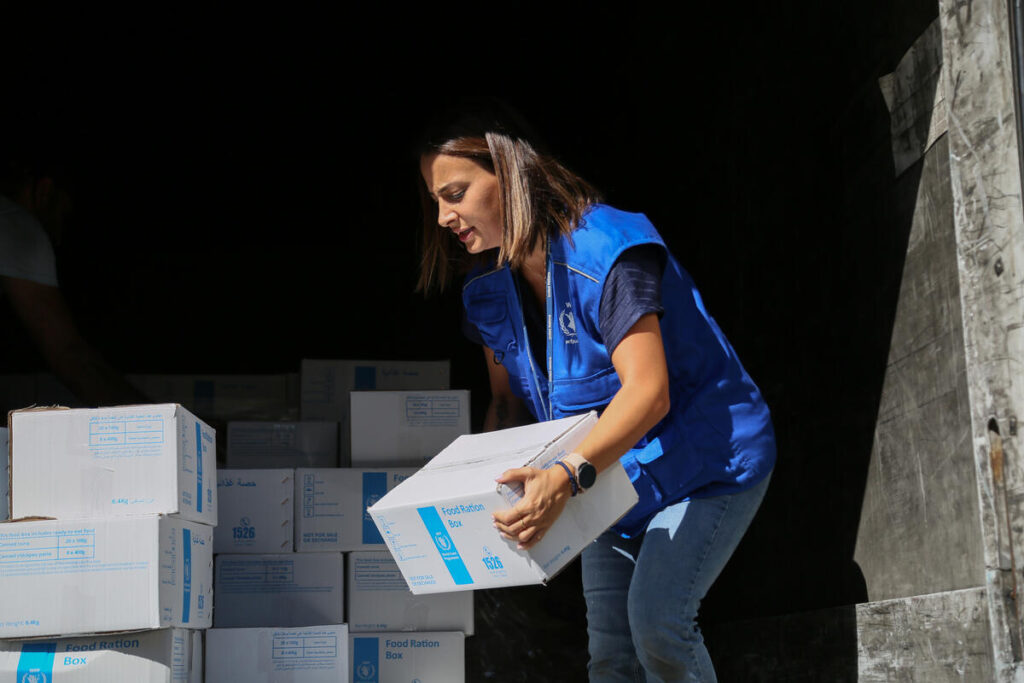WFP Launches Emergency Food Operation to Reach 1 Million People Affected by the Conflict in Lebanon

BEIRUT – The United Nations World Food Programme (WFP) has launched an emergency operation to provide food assistance for up to 1 million people affected by the recent escalation of the conflict in Lebanon. The agency is distributing ready-to-eat food rations, bread, hot meals and food parcels to families in shelters across the country.
A further acceleration of the conflict this weekend underscored the need for an immediate humanitarian response. This comes after thousands of people had already been displaced, compounding the fragility of a population burdened by accumulated crises.
The U.N. World Food Programme, which has been on the ground providing assistance since the first day of the crisis, has to-date reached more than 66,000 people in shelters across the country. The U.N. World Food Programme has been working with donors and partners for several months to stockpile food supplies in strategic areas across the country and was able to significantly expand its assistance thanks to comprehensive preparations.
“In just a few days, U.N. World Food Programme assistance has reached thousands of newly displaced people,” said Matthew Hollingworth, U.N. World Food Programme country director in Lebanon. “Today, I listened to stories of families forced to flee their homes, leaving everything behind in search of safety. As the crisis deepens, we are preparing to assist up to 1 million people through a mix of cash and food support. However, we urgently need additional resources to sustain and scale up our response.”
To continue these critical operations, the U.N. World Food Programme urgently requires $105 million until the end of the year and calls on the international community to mobilize resources and support the humanitarian response.
Kitchens and hot meal operations have been set up in north and central Lebanon to prepare light meals for those seeking safety in shelters. These facilities will boost the U.N. World Food Programme’s ability to provide hot meals in response to the growing number of displaced people.
Partners from the food security sector have also contributed by providing hot meals to nearly 14,000 displaced people in collective shelters, demonstrating a coordinated effort to address urgent humanitarian needs.
“Lebanon is at a breaking point and cannot endure another war,” said Corinne Fleischer, U.N. World Food Programme regional director for the Middle East, North Africa, and Eastern Europe. “A further escalation would be highly detrimental to the people of this region, who have gone through so much already. Additionally, it would massively stretch the humanitarian community’s collective operational and financial capacities. The U.N. World Food Programme is on the ground, but we urgently need funds. More urgently, the people in the region need peace.”
The U.N. World Food Programme is monitoring the situation and, with currently available resources, can scale up to reach up to 1 million people affected by the recent escalation for one month.
# # #
The United Nations World Food Programme is the 2020 Nobel Peace Prize Laureate and the world’s leading humanitarian organization, saving lives in emergencies and using food assistance to build a pathway to peace, stability and prosperity for people recovering from conflict, disasters and the impact of climate change.




